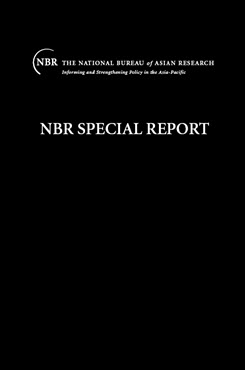NBR Special Report
Report of the National Commission on U.S.-Indonesian Relations
Given its size and importance, Indonesia is critical to stability in Southeast Asia. It has been the anchor of the Association of Southeast Asian Nations (ASEAN) and a key player in the ASEAN Regional Forum, the only organization in the Asia-Pacific region that brings the United States together with Japan, China, ASEAN and others to discuss security issues.
Strengthening U.S. Relations with Indonesia: Toward a Partnership for Human Resource Development
Indonesia, the world’s fourth most populous nation and third largest democracy, is the pivotal state in Southeast Asia. It has exercised major influence in the region and plays an active and constructive international role. It has vast natural resources and is strategically located astride major lines of communication between the Pacific and Indian Oceans. Half of the world’s merchant fleet capacity passes through straits with Indonesian territory on one or both shores. Including its oil and mineral sectors, Indonesia is home to about $25 billion in U.S. investment, with more than 300 major U.S. firms represented there.
Two additional factors are of particular importance today:
- Indonesia has the world’s largest Muslim population—more than all the Middle Eastern Arab states combined. The vast majority of Indonesia’s Muslims have historically been noted for their moderation. Theirs is one of the few Muslim-majority nations in which Islam is not the state religion.
- Given its size and importance, Indonesia is critical to stability in Southeast Asia. It has been the anchor of the Association of Southeast Asian Nations (ASEAN) and a key player in the ASEAN Regional Forum, the only organization in the Asia-Pacific region that brings the United States together with Japan, China, ASEAN and others to discuss security issues.


